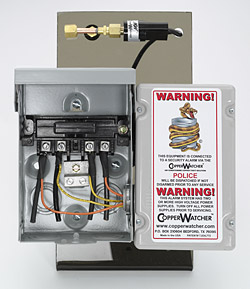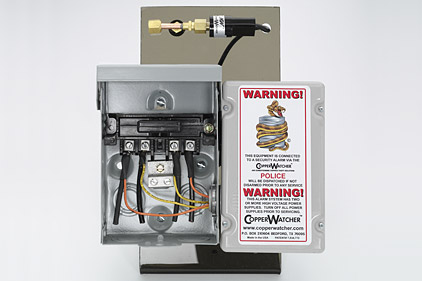Now, Bob’s company has promoted him to help train a new employee, right out of a school specializing in HVAC, just like Bob was. Bob is now Tim’s Btu Buddy. Tim is anxious to travel with Bob. Tim realizes that he is right out of school, with the theory and lab work that he accomplished in school, but still needs help. He knows that he worked with many of the components of the systems in the school, under ideal conditions with good light and air conditioning. Now it is into the field, sometimes under the house with poor lighting, or out on the rooftop in the sun, where the real action is. He is naturally and normally reluctant, but he has Bob to help guide him.
Bob and Tim were just finishing a service contract call when they were contacted by the dispatcher about a no cooling call at a new installation at a small retail store. The weather was unusually warm for this time of the year.
When they arrived, they went in and talked to the manager of the store. She said, “The system was working great yesterday afternoon but when we walked in this morning, the unit started up, but there was no cooling.”
Bob and Tim went to the thermostat and the thermometer read 76°F and it was set at 72°. It was obvious that the system was not working. They noticed that the indoor fan was running, but there was no cooling. They went to the manager and told her that they were going up to the roof where the condensing unit was and she showed them to the roof hatch.
When they got up to the roof, it was clear to see what had happened to the unit. Someone had shut off the disconnect and stolen the copper coil from the unit. The charge had blown without recovery. This was evident because of the amount of oil that was sprayed when the lines were cut.
Tim said, “Boy, this is a mess. What do we do now?”
Bob said, “First we need to talk to the store manager and get her to call their insurance company.”
When they explained it to the manager, she called the insurance company and the company sent an adjuster over. She also called the police and they came over.
The police officer said, “This is not uncommon, except this usually does not occur on the roof of buildings. They had to get up there to do their work. I am going to explore around the building and see how they got access to the roof.”
The insurance adjuster said, “I need to take a look at the unit.”
They went to the roof for a look around. When the insurance adjuster saw the unit, he said, “They ruined the top of the unit and tore the frame up. This unit should be replaced instead of repaired. I will sign the papers and you can get on with the replacement.”
The policeman came back about that time and said, “The evidence seems to point to the roof access being from the top of a garbage dumpster. It is likely they put a short ladder to the top of the building and pulled the ladder up on top and their truck must have pulled off while they did their work. Cell phones make it easy to communicate so the driver probably went off to a fast food place and killed time while the rooftop people did their work. When the truck was notified, they just pulled up and the coil was dropped to the truck, the people came down and took the ladder, and they were gone. There was minimum time on the ground, so patrol cars or other traffic did not see anything.”
Bob said, “They must have done this before.”
The policeman said, “They were pros and knew just what to do.”
The insurance adjuster said, “They got a few dollars for the copper and caused several thousand dollars in replacement damage and replacement problems for someone else. Some people only think of themselves.”
Bob asked, “What can a customer do to prevent this from happening?”
The policeman said, “There are several things that seem to deter this from happening. First, know that there are several kinds of thieves that perform this kind of work:
1. The pro, and those are hard to defeat because they know of the alarms and can work fast enough to get in and out quickly.
2. The teenager that sees a quick dollar. They are more timid and afraid and will run at the slightest deterrence.
3. The non-professional thief who is also timid but not as easy to discourage.”

|
| Figure 1. This theft protection system uses both power outage and refrigerant pressure loss to detect theft. Both of these usually occur as the thief turns off the power before cutting the pipes loose. (Photo courtesy of CopperWatcher.) |
He continued, “Some of the things that can be done to prevent copper theft are:
1. Refrigerant alarm systems are available (Figure 1). Some of them sound and call the police at a rapid pressure drop, when the lines are cut. Other alarms monitor power outage and refrigerant loss at the same time, which replicates what we saw in this incident.
2. Motion detector lights in the vicinity of the unit that will come on when people are around the unit would help. In this case, it might help the thief with good lighting and may not be noticed unless someone off premises notices and calls.
3. Signs on the unit stating it is alarm protected will help.
4. More difficult access to the building roof would have helped here. In this case, the dumpster should have been further out from the building so that a tall ladder would have been needed. It would have taken more time and time is their enemy.
5. A strong fence and a fence cover is effective for units that are on the ground.”
Bob said, “Wow, you have been involved with this before.”
The insurance adjuster said, “When a customer takes all of these precautions, there would likely be a reduction in policy costs. We would all have been better off if this could have been avoided.”
Bob and Tim went to the supply house and picked up another unit and installed it the next morning. After a leak test and evacuation, they started it up. They then informed the store manager that they had completed the installation. She said, “Thanks for a job well done. Everybody did their part and we were not without cooling for more than a day.”
When riding away from the job, Tim said, “It makes you feel really good when all of the pieces fall into place like that. Is it always that way?”
Bob said, “No, but I only like to talk about the happy endings.”
Publication date: 04/23/2012



Report Abusive Comment